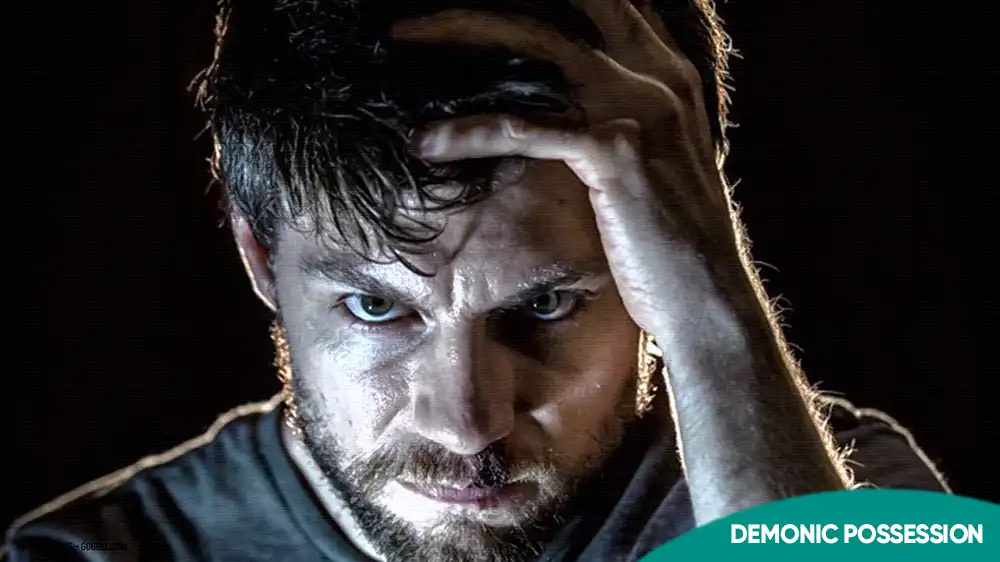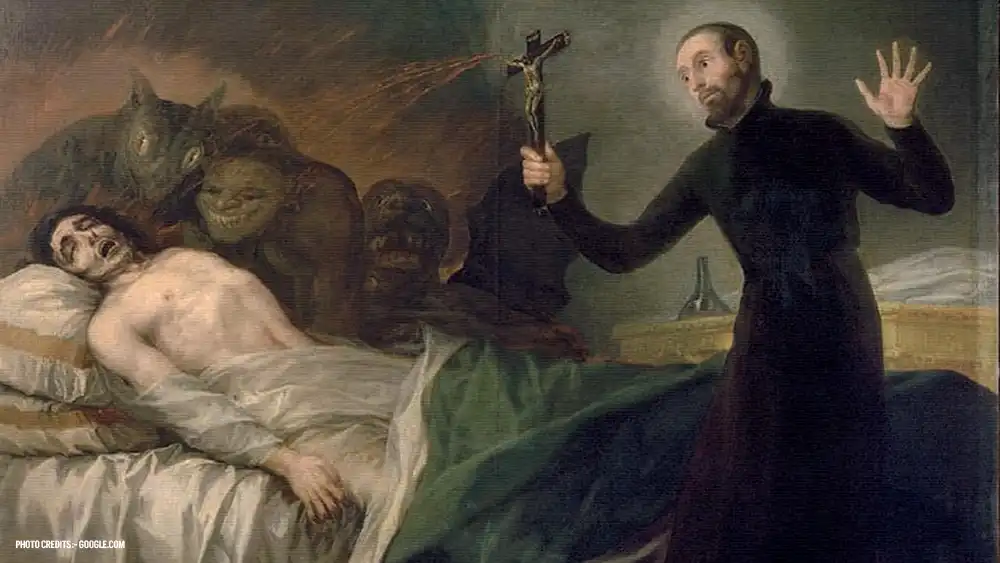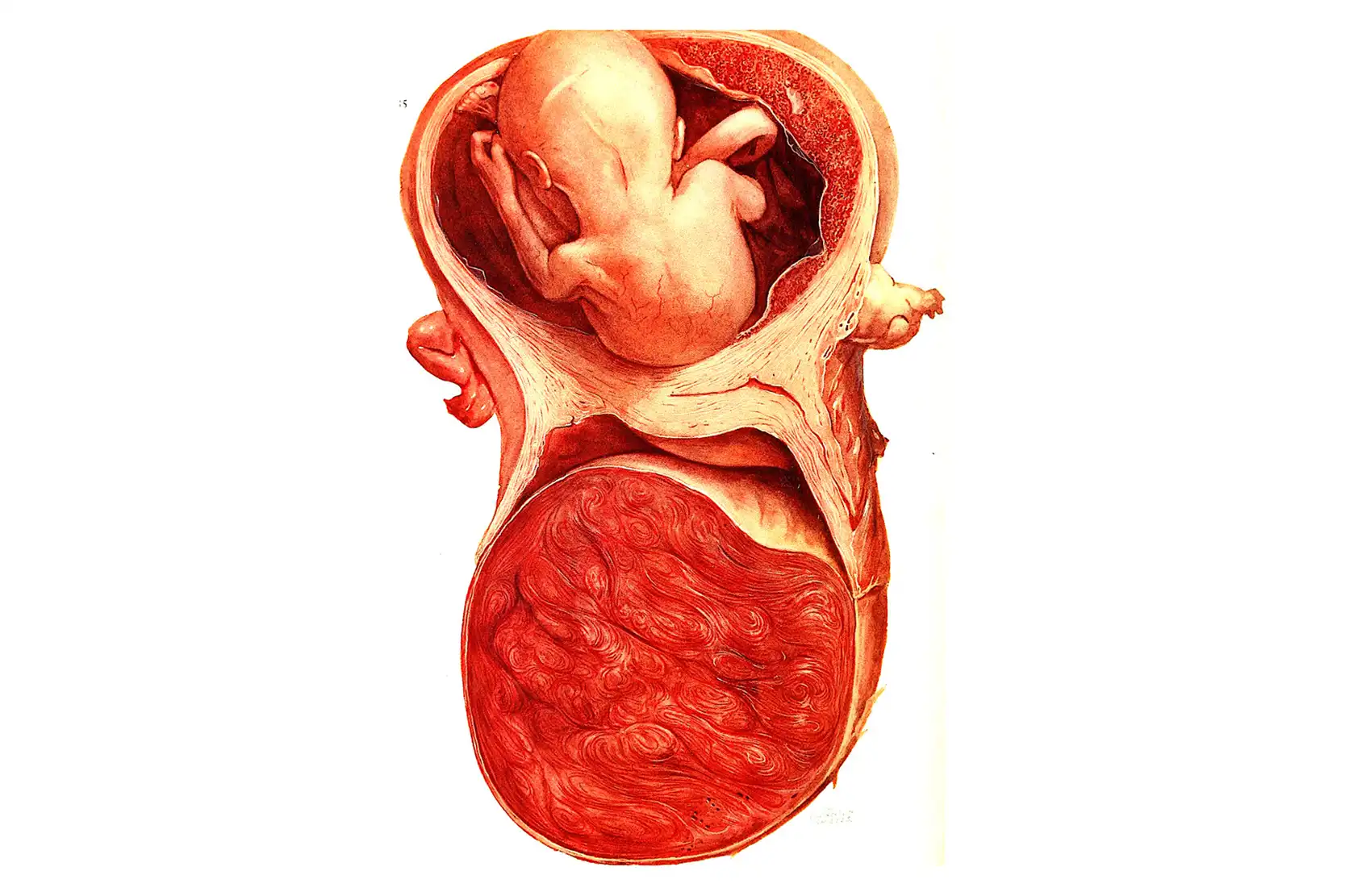
NEUROSCIENCE
Demonic Possession: Unraveling the Mysteries of a Dark Phenomenon
-
Rahul Priydarss
Introduction of Demonic Possession:
Demonic possession has long fascinated and terrified humanity. Tales of evil entities taking over human bodies have permeated our cultural consciousness from ancient civilizations to modern times. The concept of a demon invading and controlling a person’s mind and body is both chilling and compelling, stirring deep fears and curiosity in equal measure. But what exactly is demonic possession? How has it been perceived through history, and what explanations do we have today?
Definition of Demonic Possession:
Demonic possession is defined as a condition where an individual’s body and mind are believed to be controlled by a demon or evil spirit. Involuntary behaviors and actions, significant personality changes, and physical symptoms such as contortions, seizures, and extraordinary strength characterize this phenomenon. Possessed individuals often exhibit knowledge they couldn’t have acquired normally, such as speaking unknown languages or revealing hidden details about people and events. They also typically show an extreme aversion to sacred objects, prayers, or rituals.

Table of Contents
What is Demonic Possession:
Demonic possession is a condition in which an individual is believed to be controlled by a demon or evil spirit. Involuntary actions, drastic personality changes, and physical symptoms such as seizures, contortions, and unusual strength mark this phenomenon. People who are possessed may display knowledge they couldn’t have obtained naturally, like speaking unknown languages or revealing hidden information. They often have a strong aversion to sacred objects, prayers, or rituals.
This concept is prevalent in many religious and cultural traditions. In Christianity, it is addressed through exorcism rituals performed by clergy. In Islam, possession by jinn is treated with spiritual healing called Ruqyah. Hinduism involves rituals and prayers to free individuals from spirits, while many indigenous cultures use shamans or traditional healers for this purpose.
Symptoms of Demonic Possession:
Symptoms of demonic possession typically include a range of physical, psychological, and behavioral signs. Common symptoms are.
Involuntary Actions: The person exhibits behaviors and actions beyond their control, often influenced by the possessing entity.
Personality Changes: Significant and sudden changes in personality, where the individual may behave in ways that are completely out of character. This can include drastic mood swings, aggression, and violent behavior.
Physical Symptoms: These can include unexplained contortions, seizures, unusual strength, and self-harming behaviors. The possessed individual might also exhibit facial and bodily distortions.
Altered Voice: The individual may speak in a different voice or multiple voices that are not their own, often sounding deeper or more guttural.
Knowledge and Abilities: Possessed individuals might demonstrate knowledge they could not have acquired through normal means, such as speaking foreign or ancient languages they have never learned or revealing intimate details about people and events unknown to them.
Aversion to Sacred Objects: A strong and often violent reaction to sacred objects, prayers, or rituals, such as crosses, holy water, or scriptures. The individual might refuse to enter religious places or become agitated when encountering anything related to their faith.
Unusual Bodily Functions: The possessed person might exhibit strange and unexplained physical phenomena such as changes in body temperature, bleeding from orifices without medical cause, or other bizarre medical symptoms.
Changes in Dietary Habits: Sudden changes in eating habits, either eating excessively or refusing to eat altogether, sometimes coupled with cravings for unusual or inappropriate substances.
Lack of Response to Medical Treatment: The individual’s symptoms may not respond to conventional medical or psychological treatments, often prompting the consideration of spiritual or religious intervention.
Fear or Discomfort: Those around the possessed individual may feel an inexplicable sense of fear or discomfort in their presence.
How is Demonic Possession Different from Mental illness:
Demonic possession and mental illness can share similar symptoms, but they are understood and treated differently. Here are key differences:
Source of Symptoms:
- Demonic Possession: Believed to be caused by an external evil entity or spirit.
- Mental Illness: Symptoms are attributed to internal psychological or neurological factors.
Behavioral Symptoms:
- Demonic Possession: Includes behaviors like speaking unknown languages, exhibiting unnatural strength, and reacting violently to religious objects.
- Mental Illness: Behaviors align with psychiatric diagnoses, such as hallucinations in schizophrenia or personality changes in dissociative identity disorder, without the supernatural elements.
Knowledge and Abilities:
- Demonic Possession: Possessed individuals might demonstrate knowledge they couldn’t have naturally, such as foreign languages or hidden information.
- Mental Illness: Patients do not typically exhibit knowledge beyond their learning or experience.
Response to Religious Objects:
- Demonic Possession: Strong aversion or violent reactions to sacred objects, prayers, or rituals.
- Mental Illness: Generally, no specific reaction to religious objects unless tied to personal beliefs or delusions.
Physical Symptoms:
- Demonic Possession: Can include unexplained contortions, seizures, and bodily distortions that don’t align with medical conditions.
- Mental Illness: Symptoms like seizures can be attributed to known neurological conditions such as epilepsy.
Response to Treatment:
- Demonic Possession: Symptoms often do not respond to medical or psychological treatments but may respond to exorcism or spiritual rituals.
- Mental Illness: Symptoms typically improve with appropriate medical, psychological, or psychiatric treatment, though treatment-resistant cases exist.
Cultural and Contextual Factors:
- Demonic Possession: Often framed within religious or cultural beliefs, with specific rituals and interpretations tied to the community’s spiritual views.
- Mental Illness: Diagnosed and treated based on medical and psychological frameworks, with emphasis on evidence-based practices.

Diagnosis of Demonic Possession:
Diagnosis of demonic possession is typically conducted within religious or spiritual contexts rather than by medical or psychiatric professionals. Here’s how it may be approached:
Observation of Symptoms: Religious leaders or individuals within the community trained in spiritual matters observe the behavior and symptoms exhibited by the person in question. These include involuntary actions, drastic personality changes, aversion to sacred objects, and other signs mentioned previously.
Interviews and Interactions: Those involved in the diagnosis often conduct interviews and interact with the person who is believed to be possessed. They may ask questions about the person’s behavior, experiences, and feelings, as well as their response to religious objects or rituals.
Cross-Referencing with Religious Texts: Some communities may consult religious texts, such as the Bible, the Quran, or other sacred writings, to look for parallels between the person’s experiences and descriptions of possession found in these texts.
Spiritual Discernment: Experienced clergy or spiritual leaders may rely on spiritual discernment, intuition, or religious insight to assess the presence of a demonic entity. This can involve prayer, meditation, and seeking guidance from higher spiritual authorities.
Exorcism Rite: If the signs and symptoms align with the criteria for possession within the specific religious or cultural belief system, an exorcism rite may be performed. During this ritual, prayers, incantations, and other religious practices are used to expel the presumed demon or evil spirit from the afflicted individual.
Criticisms and Controversies of Demonic Possession:
Criticisms and controversies surrounding the concept of demonic possession arise from various perspectives, including religious, scientific, and ethical considerations. Here are some of the key criticisms:
Lack of Empirical Evidence: One of the primary criticisms is the lack of empirical evidence to support the existence of demonic possession. Skeptics argue that there is no scientific proof of the existence of demons or evil spirits and that the observed behaviors associated with possession can often be explained by natural causes, such as mental illness or neurological disorders.
Medical and Psychiatric Explanations: Many mental health professionals view symptoms attributed to demonic possession as manifestations of underlying psychiatric disorders, such as schizophrenia, dissociative identity disorder (DID), or other psychoses. They argue that these conditions should be treated using evidence-based medical and psychological interventions rather than religious rituals.
Potential for Harm: Critics express concerns about the potential harm caused by the belief in demonic possession. In some cases, individuals suspected of being possessed may be subjected to exorcism rituals or other spiritual practices that could exacerbate their psychological or medical condition. There have been instances of physical and psychological abuse during exorcism attempts, leading to injury or even death.
Cultural Relativity: The concept of demonic possession varies significantly across different cultures and religious traditions. What is considered possession in one culture may be interpreted differently in another. Critics argue that cultural beliefs and practices surrounding possession are highly subjective and influenced by social, historical, and religious factors, rather than objective evidence.
Stigmatization and Discrimination: The attribution of unusual behaviors to demonic possession can contribute to the stigmatization and discrimination of individuals with mental health conditions. Instead of seeking appropriate medical or psychiatric treatment, individuals may be ostracized or marginalized within their communities, further exacerbating their suffering.
Ethical Concerns: There are ethical considerations regarding the practice of exorcism and other spiritual interventions. Questions arise about the informed consent of the individual undergoing the ritual, as well as the qualifications and intentions of those performing the exorcism. Additionally, the use of coercion or force in exorcism rituals raises significant ethical concerns.
Interference with Medical Treatment: Belief in demonic possession can sometimes lead individuals and communities to reject or delay seeking medical or psychiatric treatment for underlying health issues. This can have serious consequences for the affected individuals, as they may not receive the appropriate care they need to address their condition effectively.
Full Detailed Video Link- https://youtu.be/6V8ZgaFYAag?si=wDCd8DcnpWAgrDWI Use caption for Subtitle.
Why Demonic Possession Similar To Multiple Personality Disorder:
Demonic possession and multiple personality disorder (now known as dissociative identity disorder, DID) share some similarities in their symptoms, which can lead to confusion between the two. Here’s why they may appear similar.
Altered States of Consciousness: Both conditions involve alterations in consciousness. In cases of demonic possession, the affected individual may exhibit a change in personality or behavior believed to be caused by the influence of a demon or evil spirit. Similarly, individuals with DID experience distinct identities or personality states that control their behavior and consciousness.
Amnesia and Memory Disturbances: Both demonic possession and DID can involve memory disturbances. Possessed individuals may have periods of amnesia or gaps in memory, which can also occur in DID when different identities or personality states take control.
Involuntary Behaviors: Individuals experiencing demonic possession and those with DID may display behaviors that appear involuntary or out of their control. This can include speaking in different voices, exhibiting unusual physical abilities, or engaging in actions that are not typical of their usual behavior.
Alterations in Identity: In cases of demonic possession, the affected individual may exhibit a change in identity or sense of self, believing themselves to be possessed by a separate entity. Similarly, individuals with DID have multiple distinct identities or personality states, each with its own set of behaviors, memories, and characteristics.
Trance-Like States: During episodes of possession, individuals may enter trance-like states where they appear to be under the control of an external force. Similarly, individuals with DID may experience dissociative states where they feel detached from reality or as if they are watching themselves from outside their bodies.
Two examples Often Cited as Demonic Possession:
Demonic Possession is not recognized as a medical condition by the scientific community. There is no diagnostic criteria for demonic possession and experiences attributed to possession can often be explained by mental health conditions or neurological disorders.
Here are two examples often cited as demonic possession, but which have more likely medical explanations.
1- In the case of Anneliese Michel, a young German woman from a devout Catholic family, disturbing changes began in her late teens. Hallucinations, social withdrawal, and eventually violent self-injury and speaking in strange voices became her reality. Initially diagnosed with epilepsy, medications offered no relief. Temporal lobe epilepsy, causing unusual behavior and hallucinations, is a possibility, but a full psychiatric evaluation wasn’t conducted.
Fearing demonic possession, her family convinced the Church to authorize an exorcism. The year-long rituals coincided with Anneliese’s worsening condition as she refused food and grew weaker. Tragically, she died in 1976 from malnutrition and dehydration. The exorcism participants faced negligent homicide charges for failing to seek proper medical care. This case ignited debates about religion’s role versus medicine in treating mental illness. Today, many believe Anneliese’s experiences stemmed from a misdiagnosed mental health condition, possibly schizophrenia.
2- Details surrounding Roland Doe, a pseudonym used to protect his identity, are limited. This American case dates back to the 1940s. He exhibited symptoms often associated with demonic possession – speaking unknown languages, displaying superhuman strength, and even levitation. Objects moving on their own were also reported. While the specifics remain unclear, Roland’s experiences could be explained by a dissociative disorder, a coping mechanism that can develop after trauma.
He reportedly had a history of physical and sexual abuse. An exorcism was performed, and his symptoms reportedly ceased afterward. However, it’s impossible to determine if the exorcism itself or the intervention and attention he received played a role.
FAQs about Demonic Possession:
A1: Possession and mental illness can exhibit similar symptoms, such as altered behavior and speech. However, mental illness is a medical condition diagnosed by healthcare professionals, whereas possession is often viewed through a religious or cultural lens.
A2: Yes, scientific explanations for possession-like symptoms include mental health disorders, neurological conditions, and psychological factors. These explanations emphasize the importance of medical evaluation and treatment.
A3: Different cultures have unique perspectives on possession, influenced by their religious and spiritual beliefs. While Western cultures often associate possession with Christianity, other traditions have their interpretations involving spirits, ancestors, or other supernatural entities.
A4: Famous cases include the exorcism of Anneliese Michel, the Loudun possessions, and the Smurl haunting. These cases have been widely documented and often spark debate about the nature of possession and exorcism.
A5: Prevention measures vary across cultures and beliefs. They may include spiritual practices like prayer and meditation, maintaining psychological well-being, and fostering supportive community environments.
-Please remember, to always consult with healthcare professionals or Doctors for personalized advice related to medical conditions.
Conclusion:
In conclusion, the concept of demonic possession remains a subject of fascination and controversy. While deeply rooted in religious and cultural beliefs, skepticism arises due to the lack of empirical evidence and potential for harm. Criticisms often emphasize the importance of medical and psychiatric explanations, highlighting ethical concerns and the stigma associated with mental illness. Understanding demonic possession requires a balanced approach that considers religious, scientific, and ethical perspectives to address its mysteries responsibly.




